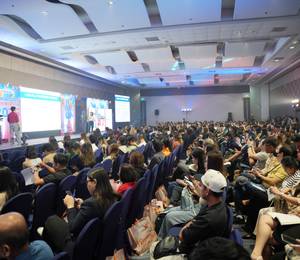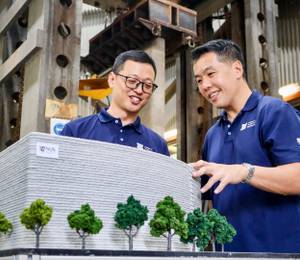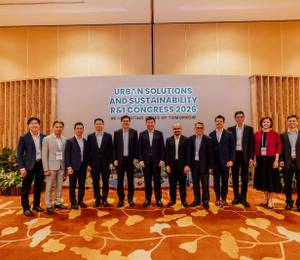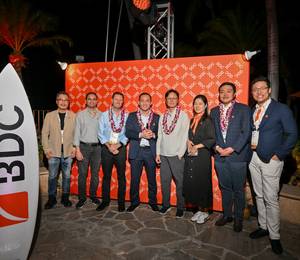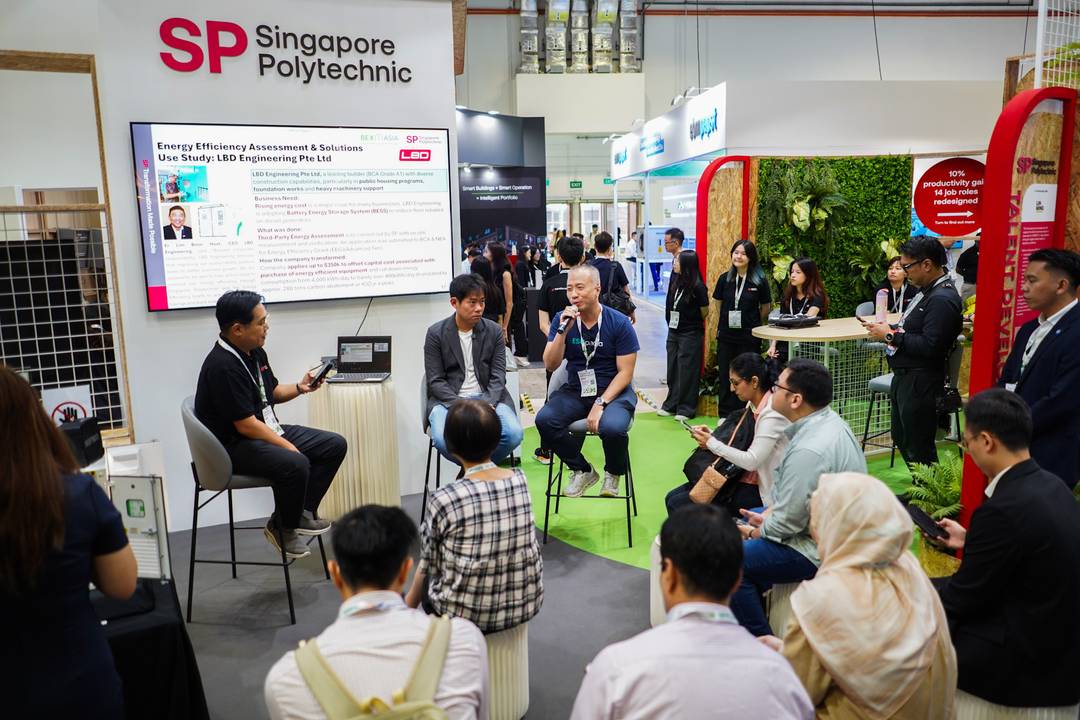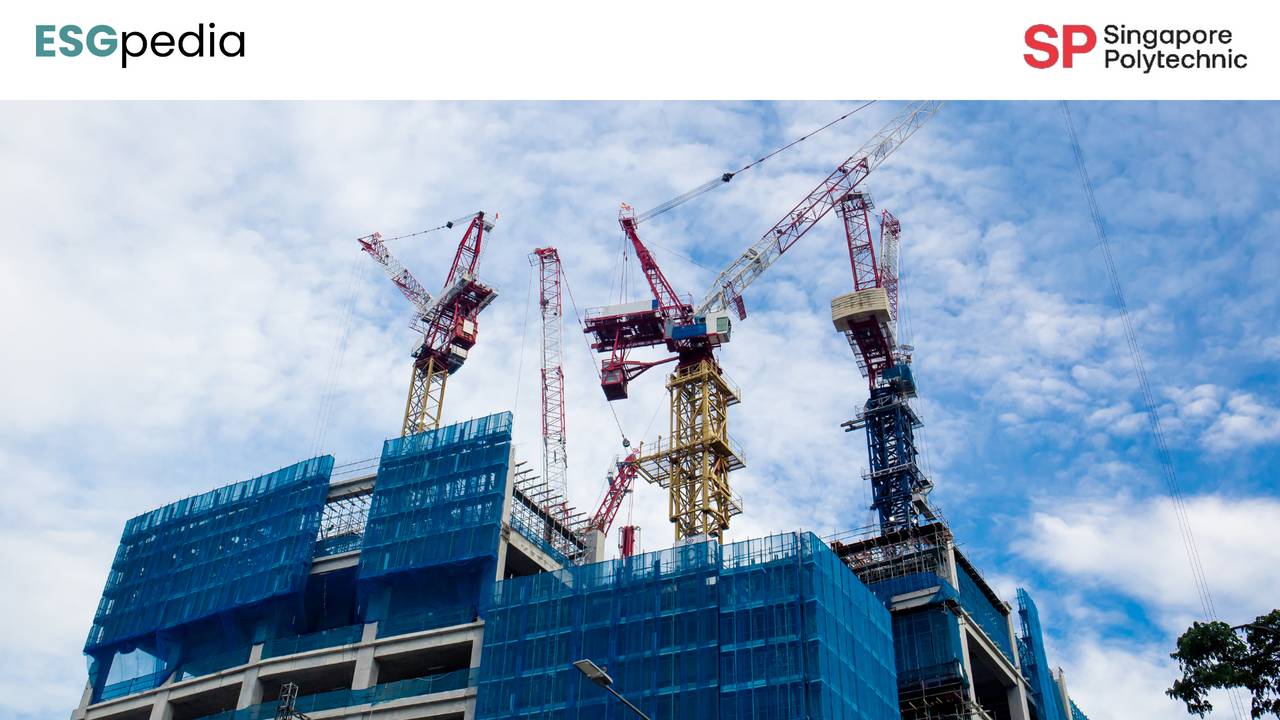SINGAPORE, 4 September 2025—Singapore Polytechnic (SP) has partnered with Asia’s leading Environmental, Social, Governance (ESG) data and technology company, ESGpedia. The partnership aims to support the sustainability capability development of local companies while leveraging ESGpedia’s digital platform to enable local companies to achieve carbon accounting and improved energy efficiency.
Beyond sustainability capability development and carbon accounting, the programme also involves the Energy Efficiency Grant (EEG) (Advanced Tier). SP has been whitelisted by the Building and Construction Authority (BCA) and the National Environment Agency (NEA) as a third-party assessor for companies to purchase energy-efficient equipment of up to S$350,000. The EEG helps businesses transition towards lowering their carbon emissions by co-funding investments in energy-efficient equipment.
The programme has two main components to help businesses build capability and capacity in sustainability and take steps towards decarbonisation:
- ESGpedia will be providing its standards-aligned carbon accounting and sustainability reporting solutions to help businesses accurately quantify and track their greenhouse gas (GHG) emissions.
- SP will deliver sustainability learning journeys, training, and consultancy projects to companies using ESGpedia’s carbon accounting and sustainability reporting platform, while providing their energy efficiency assessment under the EEG Grant to help businesses decarbonise.
Lam Kok Seng, Centre Director, Centre for Environmental Sustainability & Energy Efficiency at Singapore Polytechnic, said, “Singapore Polytechnic’s (SP) partnership with ESGpedia enhances the development of our staff’s capability in delivering joint industry trainings and consultancy projects. This opportunity also allows SP to expand its ecosystem and leverage the business network for sustainability initiatives, including joint industry engagements to enable knowledge sharing and the opportunity for SP’s students to work on real-world sustainability projects.”
Benjamin Soh, Founder and Managing Director at ESGpedia, said, “Energy efficiency is key in the pursuit of a more sustainable and economically viable future. We are delighted to be partnering with Singapore Polytechnic to help businesses like LBD Engineering establish and track their greenhouse gas emissions, embark on standards-aligned sustainability reporting, and tap on energy efficiency services through the Energy Efficiency Grant (EEG) to decarbonise their value chains.”
As of today, successful implementations include LBD Engineering. As a leading builder (BCA Grade A1) with diverse construction capabilities, particularly in public housing programmes, foundation works, and heavy machinery support, LBD Engineering has adopted ESGpedia to effectively calculate and track its Scope 1, 2, and 3 GHG emissions and credibly generate its GRI-aligned Sustainability Report.
As a next step to having established their baseline E, S, and G metrics, LBD Engineering has utilised Singapore Polytechnic’s assessor services for energy efficiency under the EEG Grant to assess the eligibility of Infinity Cube’s Battery Energy Storage System (BESS) for sustainable construction. This will improve their operational efficiency, decarbonise their value chain, and reduce their environmental impact.
This has had a positive financial impact on LBD Engineering by strengthening its competitiveness in securing project tenders, given the growing demand for greener buildings in both the public and private sectors. The Singapore government will start including environmental criteria for government projects in 2024.
Lim Boon Huat, CEO at LBD Engineering, commented, “Beyond corporate responsibility, LBD Engineering believes that improving our sustainability posture leads to better business growth. We have hence worked with ESGpedia to utilise their digital platform to calculate our carbon emissions and generate our Sustainability Report in accordance with the Global Reporting Initiative (GRI). We are pleased to be able to take active steps to improve our energy efficiency through Singapore Polytechnic and the Energy Efficiency Grant, to achieve further cost-savings and build stakeholders’ trust.”
Oh Jun Rong, CEO at Infinity Cube, added, “At Infinity Cube, we see Battery Energy Storage Systems as an essential enabler of Singapore’s decarbonisation drive in the construction and built environment. By replacing or hybridising diesel generator use, our systems directly reduce emissions, improve fuel efficiency, and enhance power reliability. We are committed to working with institutes of higher learning such as Singapore Polytechnic to advance technical education, support pilot deployments, and equip local businesses with both knowledge and solutions to meet future carbon neutrality goals.”
With the synergistic sustainability solutions, ESGpedia and SP will continue to drive a low-carbon, smart energy future in line with the Singapore Green Plan 2030 and accelerate local businesses’ sustainability journeys to help them better meet today’s evolving demands.
